Even though much awaited President Putin’s visit to Pakistan in the first week of October has been shelved, causing disappointment among the Pakistani establishment, the doors for finding a new understanding between the two on Afghanistan and regional issues remain wide open. Putin was to pay a bilateral visit to Pakistan before the quadrilateral summit that was scheduled for 2-3 October in Islamabad. Pakistan had become part of the quadrilateral of Russia, Afghanistan, Tajikistan and Pakistan in July 2009 when the forum’s first summit was held in Dushanbe. The main goals of the quartet are to promote regional trade and undertake joint projects in energy, transport, communications, agriculture and infrastructure. Combating terrorism, extremism, illegal trafficking of drugs and trans-national organized crimes, supporting peace and stability in Afghanistan and in the region are the other major objectives. These are usually the objectives of any number of multi-lateral structures and organizations that exist in this troubled region, for instance the Shanghai Cooperation Organisation.
Finding a regional solution to many of the problems being faced by the region especially that of instability, insecurity in Afghanistan and improving the socio-economic environment have driven the major players like the U.S., China and Russia to advance their own formulations and structures. However, the competing strategies of the main players in the arena have only added to the complexity of the regional issues.
At a time when Pakistan’s stock is running at all time low with the U.S. and its coalition partners in Afghanistan, Islamabad has been working to find a new strategic equation in the post-2014 Afghanistan scenario. Russians believe that Pakistan remains central to the Afghan imbroglio and has an important role to play in the unfolding scenario. Pakistan hopes to obtain a favourable outcome in the Afghan end game with Russia on its side. Moscow has also not been much enamoured by the so called ‘reset’ in its relations with the U.S., as promised by Obama administration. American policies on BMD, eastwards expansion of NATO and contesting Russia’s ‘privileged status’ in Central Asian region has soured the U.S-Russian relationship. Even though Russia is providing logistics routes through its territory for ISAF troops in Afghanistan it continues to oppose American bases and transit facilities being provided by Kyrgyzstan and Tajikistan.
Further, in the long run both Russia and Pakistan would like to see the back of the American troops in Afghanistan. They are against the long term presence of the American bases in Afghanistan as these have adverse strategic connotations for both Russia and nuclear Pakistan.
There is also a wide-spread belief that in its approach to Afghanistan, China is becoming wary of putting all its eggs in the Pakistani basket and has embarked on establishing a direct relationship with the Kabul regime. On the sidelines of the SCO Summit in June this year, China and Afghanistan signed a strategic partnership agreement. At the summit, Afghanistan was admitted to SCO as on observer. Further in September Zhou Yongkang – member of the powerful Politburo Standing Committee of the Chinese Communist Party - visited Afghanistan and signed a number of agreements on assisting Afghanistan in its security sector development programmes. He committed to training 300 Afghan national police officers which in effect could help the ISAF/NATO efforts of training the Afghan National Security Forces.
Thus, Pakistan has been aiming at finding new partners in the power play taking place in the region. As part of Pakistan’s desire to forge a cozy relationship with Russia Gen. Kayani has also traveled to Moscow in the first week of October. In fact, as a military head and one who is the final arbiter of Pakistan’s security and foreign policies, his visit would give an opportunity to Russian leaders to obtain insights into Pakistan’s fresh thinking, if any, on Afghanistan and regional security issues. While Kayani was in Moscow, the Russian Foreign Minister was in Islamabad for parleys with his Pakistani counterpart to explain the absence of Putin and identify with Pakistan’s role in the region. Sergei Lavrov supported Pakistan’s stance on the U.S. Drone strikes and denounced these attacks as violations of Pakistani sovereign territory.
Russia and Pakistan are looking for many benefits from mutual cooperation. The Russian gas company Gazprom has been looking forward to being awarded a contract for building the Iran-Pakistan gas pipeline without many of the processes associated with the laid down procedures. Russia has agreed to modernise, reconstruct and expand the Pakistan Steel Mills that has been running far below its capacity. Russia would also be supporting Pakistan Railways by undertaking a joint venture for developing a carriages workshop and may even supply Russian rail carriages. The Russians are also converting two Pakistani thermal power plants from furnace oil to coal.
Gaining access to the warm waters of the Indian Ocean has been a long cherished Russian desire since the days of Tsarist Russia and a route through Pakistan could be one useful option. Writing recently in Pravda, an analyst Lyuba Lulko suggests that “establishing close cooperation with Pakistan will give Russia a real chance to gain a foothold in Central and South Asia. In addition, Russia will be able to access the Indian Ocean, and make the U.S. troops in Afghanistan directly dependent on its logistics.”
The proposed multimodal transport links, another version of the old Silk Road are expected to provide benefits to all the four countries involved. Pakistan will gain access to Central Asian markets while Tajikistan and Russia would gain access to Pakistani ports. Commenting on last year’s Quadrilateral Summit at Sochi, Chairman of the Russian Parliament’s Foreign Affairs Committee Konstantin Kosachev, observed that “Russia may become a donor of economic, social and military-political security for Afghanistan, Pakistan and Tajikistan.”
Russia has also offered to revive all the Soviet era industrial and infrastructure projects (numbering about 140) in Afghanistan. Russia is also willing to help Tajikistan in the hydro-power sector. The Central Asia South Asia 1000 (CASA-1000) power transmission project of exporting electricity from hydro-power rich Tajikistan to Afghanistan and Pakistan is a much touted project. However, it is difficult to be realized because of objections to hydro-power projects by the down stream Central Asian countries like Uzbekistan. Another project is of building a road from Tajikistan across the Wakhan corridor to Pakistan in order to enhance regional connectivity. If Russia is able to support such projects and find the finances for the same then it would also gain a degree of control and enhance its influence in the region.
However, Pakistan and Russia would certainly have competing objectives in Afghanistan and Central Asia. Unlike Pakistan, Russia would be apprehensive of a radical Taliban regime in Kabul that may have the agenda of spreading its ideology to the Central Asian republics and beyond to Chechnya. Pakistan has not been able to control its own radical jihadis and it is unlikely that it would be able to have a degree of control over a resurgent Taliban regime in Kabul.
So far as India is concerned, the pipeline projects like Iran-Pakistan-India or TAPI gas pipeline project or for that any other multi-modal transport corridors can become economically viable only when India is included in them. A limited grouping like Russia-Afghanistan-Tajikistan-Pakistan may only produce a limited benefit. Pakistan’s obtuse policies of denying overland transit to Indian goods to Afghanistan and beyond deprive Pakistan and other regional countries the benefits of revenue and beneficial economic engagement and trade. Equally, its sponsorship of terrorism, and proclivity to use transit for political purposes, as shown most recently by its shutting down the NATO supply lines to Afghanistan, ensure that India remains wary of any such projects.
Connecting South Asia to Central Asia, especially through Pakistan (the shortest overland route) could be a win-win situation for all countries in the region with Afghanistan emerging as an important hub of communications in all directions. This would have positive effect on security, stability and economy of Afghanistan. But Pakistan will have to undertake a root-and-branch transformation of its security outlook for that to happen.
Published date: 8th October 2012



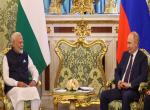
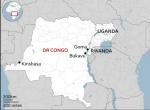
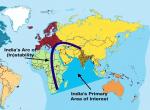

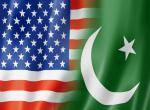

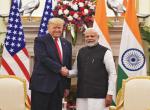
Post new comment